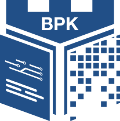Open Access mandate
What is Open Access Institutional Policy?
An Open Access policy (open mandate) is the legal obligation of authors of scientific papers to publish them in Open Access. This obligation may be imposed by the employer (research unit), research funding institution or the legislator.
Reports on the implementation of the Open Access Policy at the CUT are available on the Repository website /in Polish/. (new window)
Benefits of introducing an Open Access policy at the university:
- increasing the availability and use of the academic achievements of universities;
- access to scientific works carried out by university employees also for people from outside the scientific community;
- available information on the disposal of public funds allocated to science in Poland;
- the foundation for building, strengthening and maintaining the recognition and reputation of the university;
- to increase the possibilities of cooperation with other institutions, also from outside the field of science (e.g. enterprises);
- increase in importance and prestige;
- evaluation and management of resources created in the institution;
- monitoring and supporting the assessment of the scope and quality of conducted research;
- setting trends and new directions in science and research;
- effective and wider cooperation with institutions with a similar profile and scope of research;
- increase in progress and innovation in science, industry and economy;
- popularisation of science achievements among citizens and involving non-scientists, volunteers in the scientific process (so-called citizen science).
Ministerial activities on OA
Universal and free access to current knowledge is one of the foundations of functioning and development of democratic society. The concept of Open Access is about making scientific publications and research results available from public funds in digital form on the Internet in order to enable them to be used free of charge by scientists, students, entrepreneurs and the entire society.
The European Commission published in 2012:
- a communication on better access to scientific information; the objectives of the Open Access Policy and its relevance to Horizon 2020 have been defined,
- recommendations for EU members on access to and preservation of scientific information; it is recommended to develop openness policies, i.e. national policies on opening up scientific resources.
In August 2014, the Ministry of Science and Higher Education started to develop a policy of openness in science for Poland, organized consultations with experts and social debates. In October 2015, the Ministry of Science and Higher Education published a document entitled Directions of development of OA to publications and research results in Poland. The document is a recommendation for the introduction of OA by research funding entities (NCN, NCBR, MNiSW), research units, universities and publishers, including publishers of scientific journals.
The most important recommendations contained in this document:
- Development and adoption by individual universities, research institutes and institutes of the Polish Academy of Sciences and by the NCN and NCBR of their own institutional policies in the field of Open Access. They will define the rules for publishing research results (this applies mainly to articles in peer-reviewed journals, but also e.g. peer-reviewed conference materials, possibly research data).
- Appointment by the heads of scientific units and universities of the OA representatives.
- Moving scientific journals to open models.
- Sharing doctoral dissertations in open repositories.
- Monitoring and reporting to the Ministry of Science and Higher Education of the progress in OA implementation. Systematic analysis of the number of publications produced in a given scientific unit or university in order to determine the proportion of publications in the OA in relation to all publications.
- Organization of OA training for all research workers and PhD students of a given research unit or university.
- Taking into account the experience and potential of scientific libraries, which often coordinate the process of editing and depositing scientific publications in repositories.
The Conference of Rectors of Academic Schools in Poland (CRASP) and Polish Academy of Sciences expressed their support for the idea of Open Access:
- Resolution of the Presidium of CRASP of 13 November 2005 on making doctoral theses available;
- Position of the Presidium of CRASP and the Presidium of Polish Academy of Sciences of 5 July 2013 on the principles of OA to the content of scientific and educational publications;
- Resolution of the Presidium of CRASP of 7 June 2018 on the implementation of the OA Model.
Poland / World - openness policies (selected examples):
- Cracow University of Technology (new window);
- University of Gdańsk (new window);
- Institute of Slavic Studies Polish Academy of Sciences (new window);
- Nofer Institute of Occupational Medicine (new window);
- Medical University of Lodz (new window);
- Central Mining Institute in Katowice (new window);
- Massachusetts Institute of Technology (new window);
- Oxford (new window);
- Stanford University (new window);
- University of Liège (new window);
- Swiss Federal Institute of Technology, ETH Zürich (new window);
- National Institutes of Health (new window).
Recommended link:
If you have any questions you can reach us here: open.access@pk.edu.pl


